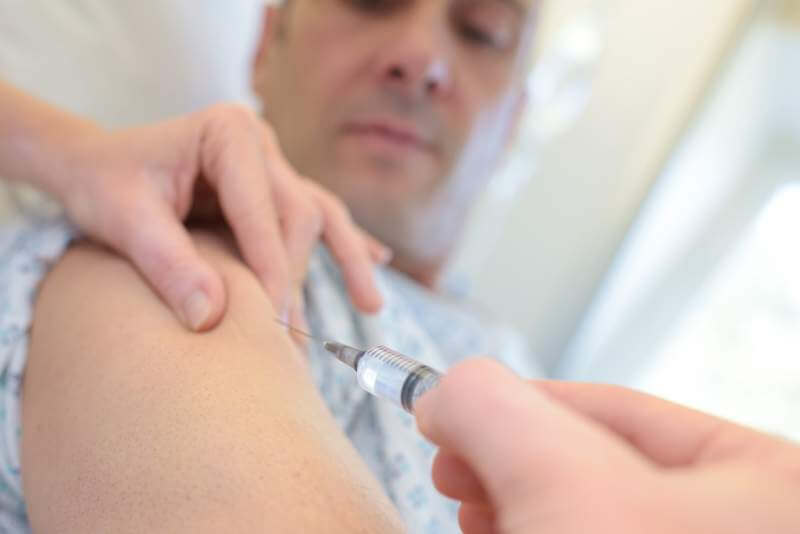You always hope and expect not to experience any medical issues while you are a visitor to a foreign land but if you suddenly find yourself in need of some urgent attention or treatment you will want to know that you are in good hands when you check in at a local hospital.
One of the first things to say here is that if you have medical insurance or you are entitled to apply for a European Health Insurance Card (EHIC) that would be a good starting point to help ensure you get looked after properly.
Here are some pointers on what steps you can take to confirm that the medical facility you are using is up to scratch and how to clarify whether the treatment options are what you deserve and are entitled to.

Get in touch with your travel insurer urgently
Depending on the extent of the medical emergency you might find yourself being transported to a hospital by a local ambulance, which is a scenario where you won’t have much control over where you end up being treated.
The main thing to remember is that it is advisable to try and tell your insurer that you have been admitted to a hospital as soon as it is possible to do so.
If you are being told that you need to go to a hospital, if you can make the call at that point it will give your insurer the opportunity to get you directed to medical facilities that are on their list.
Be mindful of differing local standards
You should have realistic expectations when it comes to local medical standards, as they can vary quite dramatically between different countries.
It should be remembered that regulations and standards are going to not what you might be used to, especially if you are in a developing country or an area that is not renowned for high standards of healthcare.
The hospital you end up being admitted to might be the best around based on a different set of standards than you might be used to.
The difference between private and public hospitals
There are likely to be pros and cons attached to each option so it will depend on what treatment you need when it comes to deciding which option is better.
Perhaps not surprisingly, private hospitals tend to have better equipment and facilities and, crucially, your odds of finding someone who speaks your language might be higher.
However, be mindful that public hospitals are likely to offer a wider range of medical services and will have intensive care options, for instance, which might be what you need in your circumstances.
Let your eyes be a guide
Take a good look around the hospital ward or waiting room that you are sitting in and you will likely form a quick opinion as to the cleanliness of the hospital overall.
It is not a foolproof grading system, for sure, but a clean and tidy hospital tends to also take safety just as seriously, so seek to gauge how good the medical facility is using your eyes.
If you have some serious concerns based on what you see, consider checking with your insurer whether there is another place you can get moved to.
You don’t have to assume or stay silent
Finding yourself in unfamiliar medical surroundings on foreign soil can be very daunting but you should never be afraid to speak up and ask plenty of questions.
You are entitled to know what is going to be happening to you and medical staff should be prepared to explain everything as they have a duty of care to keep you informed.
Carry some valid information with you
There are certain medical details that any hospital will want to know about you as it helps them determine whether you have any specific recognized health issues or allergies that they need to be informed of.
Having that information to hand will often speed up the treatment process and reduce the risk of being given medication that is not suitable.
The medical facility will also want to know how you are going to be paying for the treatment they are proposing to give you. Have the contact details of your insurer to hand when you travel.
If you are on regular medications
If you are being prescribed regular medications, such as insulin if you are diabetic, for example, you will be keeping a supply of that in a medical kit.
It would be a good idea to include a letter from your doctor in that kit, which will help if you are asked any questions about the medication you are carrying when passing through checkpoints between countries, and also provide vital details to medical staff who are treating you.
Ask the locals
Local information is so useful in so many different circumstances, and just as you would ask around to check which local restaurants come highly recommended by the locals, you can often get an honest appraisal of local medical facilities too.
If you need treatment and want to improve your odds of ending up in the place that is considered most likely to look after you well, get the inside track from the people who have first-hand experience.
Check before you go
Finally, it would be a smart strategy to check what the medical treatment situation is in the country you are going to be visiting.
Some countries charge for every treatment and others offer a certain amount of free medical services.
Check what medical options might be available to you and arrange the right sort of cover for your trip so that you don’t have to gamble on getting lucky when you suddenly find yourself in need of urgent medical assistance.
Finding quality medical care abroad can sometimes be a challenge, but there are steps you can take to help ensure you get the best possible treatment when you need it.
